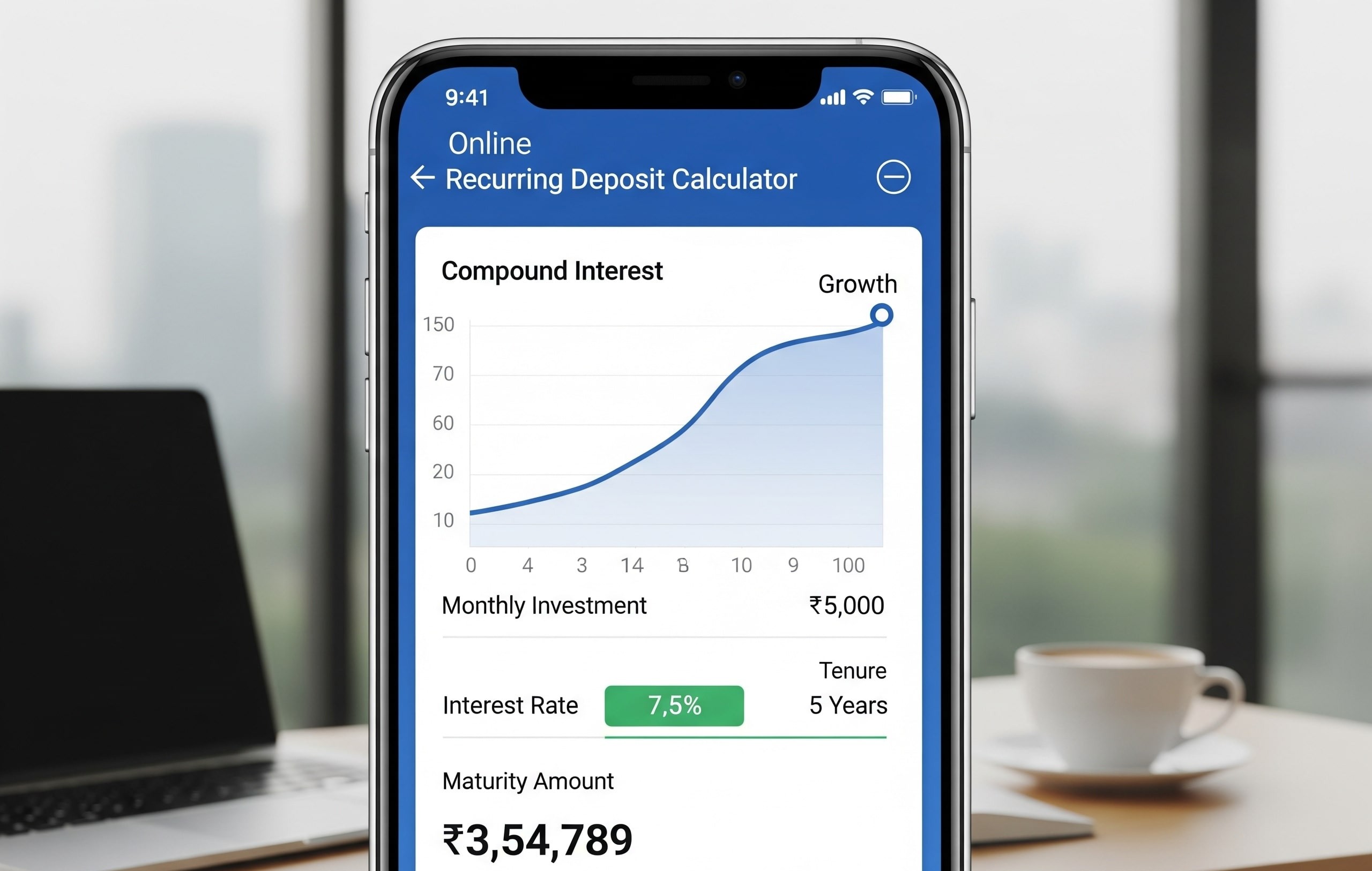
Did you know that the total amount of assets managed by mutual funds in India is worth ₹23.12 lakh crore as of March 2025? This figure underlines the rising confidence of investors in mutual funds as a wealth-creating instrument. Therefore, if you are also interested in investing wisely and meeting your financial goals, then choosing the right mutual fund becomes very important. But it is not that easy!
Various mutual fund options are available in the market designed for various financial goals and risk appetites. So, how to choose mutual funds? Well, continue reading to discover simple yet effective tips.
Define Your Goal
The first step on how to choose mutual funds is identifying your objective. Is this for a short-term need, such as for a new car or international trip, or for a long-term goal like retirement or paying for your child’s higher education? Knowing your financial goal will help you decide the kind of fund to choose.
If you don’t have a specific goal in mind, you may make wrong choices. Having a target helps you to stay focused and aligned with your investment strategy.
Also Read: How to Invest in Mutual Funds Online: A Step-by-Step Guide | Mutual Funds vs Fixed Deposits: Which is Better?
Assess Your Risk Tolerance
Your risk tolerance is one of the most critical aspects of determining which mutual fund to choose. If you can withstand market fluctuations and seek better returns, equity mutual funds are for you. But for those who like to have stable returns and lower risk, a debt mutual fund would be a better match.
Here’s a quick comparison:
| Fund Type | Risk Level | Best For |
| Equity Funds | High | Aggressive investors aiming for long-term growth |
| Debt Funds | Low to Medium | Conservative investors seeking stability |
| Hybrid Funds | Moderate | Investors seeking a balance of risk and return |
Liquidity Needs
Consider when you’ll need access to your investment before selecting mutual funds. If your financial goal is near, it is better to stay away from equity funds. These funds can also be volatile in the short term and may not yield you the returns expected within a short period.
Equity mutual funds are typically a good investment instrument if your goal is at least a year or more away, as they have the potential to give you better returns over the long run through the power of compounding.
Investment Strategy
Mutual funds follow different strategies of investment, and it is important for you to understand this before you invest your money in them. Fund houses generally use a different approach to choosing stocks and bonds or other assets, and their philosophy may agree with your own investment style, or it may not.
When the fund’s strategy doesn’t match your goals, you might end up making decisions that don’t align with your best interests, potentially leading to losses. You want to make sure their approach aligns with your expectations on risk and return.
Tax Considerations
Taxation is another important factor to consider. Mutual funds capital gains are taxed depending on how long you hold the investment.
| Fund Type | Short-Term Capital Gains (STCG) | Long-Term Capital Gains (LTCG) |
| Equity Funds | Taxed at 15% (if held for less than 12 months) | Taxed at 10% (for gains above ₹1 lakh and held for more than 12 months) |
| Debt Funds | Taxed at 30% (if held for less than 3 years) | Taxed at 20% (with indexation benefits for gains over 3 years) |
Fund Performance
The past performance of a mutual fund is one of the most critical aspects to consider. You want to see consistent returns across different market conditions.
Check the fund’s returns over a 5 or 10 year period to see how it has reacted to different market cycles. If a fund has consistently underperformed its benchmark, it may not be a good choice.
One should also take into account the reputation and experience of the fund manager. A solid and steady management team can play an important role in a fund’s ability to achieve its targets.
Expense Ratio
The expense ratio is the fee received by a fund house for managing the mutual fund. Search for funds with lower expense ratios that have a significant impact on your total returns.
- Lower Expense Ratio: Good for wealth creation in the long term.
- Higher Expense Ratio: This could consume your returns.
A lower expense ratio means more of your money is invested and compounded over time. Even minor expense ratio differences can have significant return differences over the long run.
Choosing Between SIPs and Lump Sum Investments
There are basically two ways to invest in mutual funds. Knowing how to choose SIP or lump sum investments is essential to matching your strategy as per your wealth objectives:
- Systematic Investment Plans (SIPs): In SIPs, you invest a fixed amount periodically (monthly or quarterly). This technique allows you to reduce the risk of market timing and make your purchase cost average over time, which is excellent for long-term investors.
- Lump Sum Investing: This method involves putting a single lump sum of money in at once. This approach is effective when the market is down or if you have significant amounts of savings to invest at once.
The choice between SIPs and lump sum investments depends on your financial strategy, market conditions, and risk tolerance.
Also Read: SIP vs Lump Sum: Which one is Better? | Mutual Fund Calculator: Your Guide to Smarter Investment Planning
Wrapping it Up
Rather than searching for the best mutual fund, seek one that aligns with your investment needs. Consider the discussed factors like goals, risk, and strategy to make an informed decision on how to choose SIP and mutual funds. Choosing a mutual fund does not need to be complicated. With careful evaluation, you can tailor your investments to meet your long-term financial goals and create a strong portfolio that serves you.
FAQs
1. When should I review my mutual fund investments?
Review at least once a year to ensure alignment with your financial goals.
2. Which funds are good for long-term goals?
Equity funds are ideal for long-term goals that are more than 7 years due to their potential capital growth.
3. What documents should I examine when researching a mutual fund?
Check the prospectus, annual reports, and reliable financial websites for key information.
4. Can I switch between funds if my financial goals change?
Yes, you can transfer investments to match new goals or time horizons.
5. Which mutual fund is considered safest?
Debt funds are safer due to lower volatility. Liquid funds are low-risk for short-term investments.
Hello there, my name is Phulutu, and I am the Head Content Developer at Nivesh Karlo. I have 13 years of experience working in fintech companies. I have worked as a freelance writer. I love writing about personal finance, investments, mutual funds, and stocks. All the articles I write are based on thorough research and analysis. However, it is highly recommended to note that neither Nivesh Karlo nor I recommend any investment without proper research, and to read all the documents carefully.






Leave a Reply